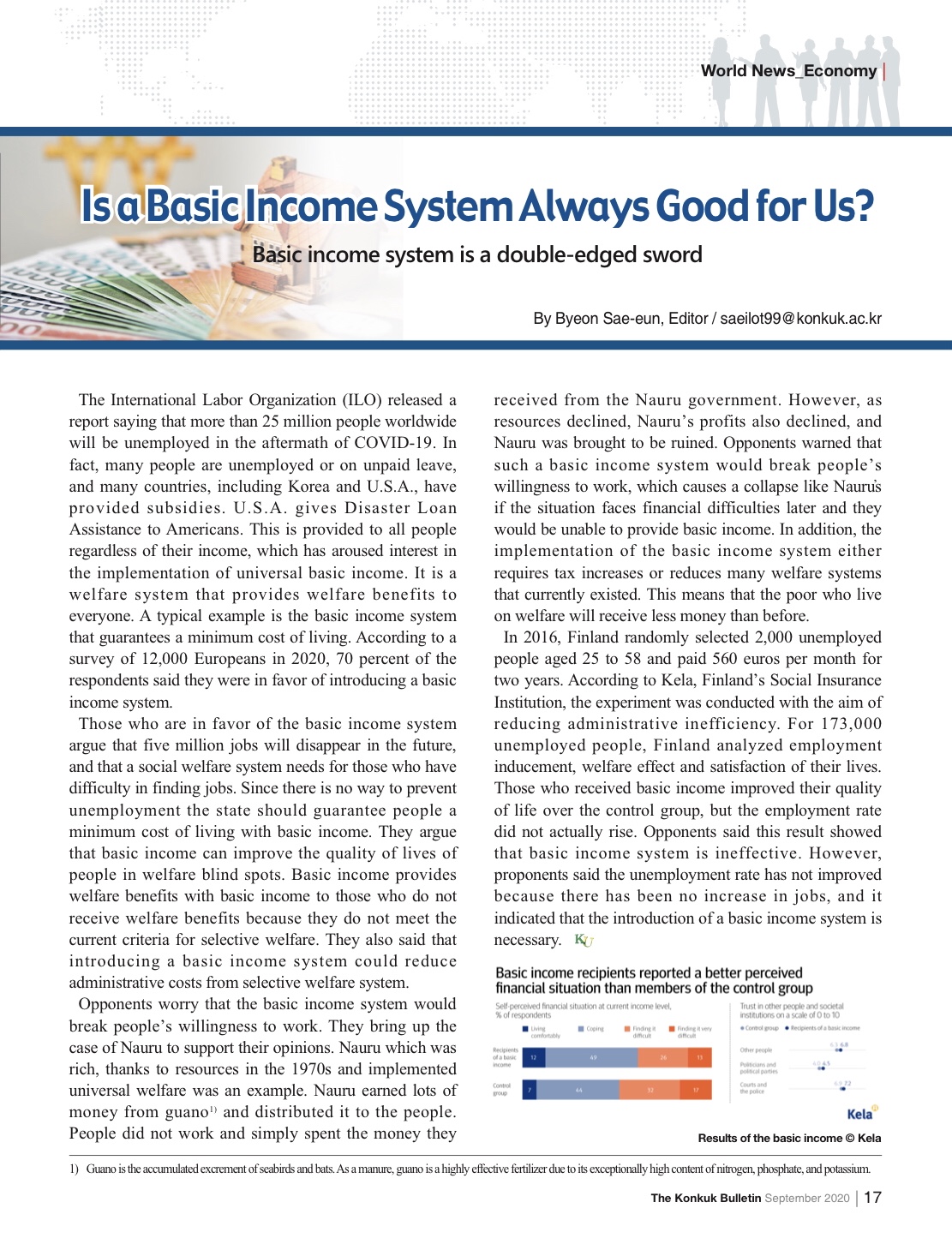Basic income system is a double-edged sword

The International Labor Organization (ILO) released a report saying that more than 25 million people worldwide will be unemployed in the aftermath of COVID-19. In fact, many people are unemployed or on unpaid leave, and many countries, including Korea and U.S.A., have provided subsidies. U.S.A. gives Disaster Loan Assistance to Americans. This is provided to all people regardless of their income, which has aroused interest in the implementation of universal basic income. It is a welfare system that provides welfare benefits to everyone. A typical example is the basic income system that guarantees a minimum cost of living. According to a survey of 12,000 Europeans in 2020, 70 percent of the respondents said they were in favor of introducing a basic income system.
Those who are in favor of the basic income system argue that five million jobs will disappear in the future, and that a social welfare system needs for those who have difficulty in finding jobs. Since there is no way to prevent unemployment the state should guarantee people a minimum cost of living with basic income. They argue that basic income can improve the quality of lives of people in welfare blind spots. Basic income provides welfare benefits with basic income to those who do not receive welfare benefits because they do not meet the current criteria for selective welfare. They also said that introducing a basic income system could reduce administrative costs from selective welfare system.
Opponents worry that the basic income system would break peopleʼs willingness to work. They bring up the case of Nauru to support their opinions. Nauru which was rich, thanks to resources in the 1970s and implemented universal welfare was an example. Nauru earned lots of money from guano1) and distributed it to the people. People did not work and simply spent the money they received from the Nauru government. However, as resources declined, Nauruʼs profits also declined, and Nauru was brought to be ruined. Opponents warned that such a basic income system would break peopleʼs willingness to work, which causes a collapse like Nauru҆s if the situation faces financial difficulties later and they would be unable to provide basic income. In addition, the implementation of the basic income system either requires tax increases or reduces many welfare systems that currently existed. This means that the poor who live on welfare will receive less money than before.
In 2016, Finland randomly selected 2,000 unemployed people aged 25 to 58 and paid 560 euros per month for two years. According to Kela, Finlandʼs Social Insurance Institution, the experiment was conducted with the aim of reducing administrative inefficiency. For 173,000 unemployed people, Finland analyzed employment inducement, welfare effect and satisfaction of their lives. Those who received basic income improved their quality of life over the control group, but the employment rate did not actually rise. Opponents said this result showed that basic income system is ineffective. However, proponents said the unemployment rate has not improved because there has been no increase in jobs, and it indicated that the introduction of a basic income system is necessary.

